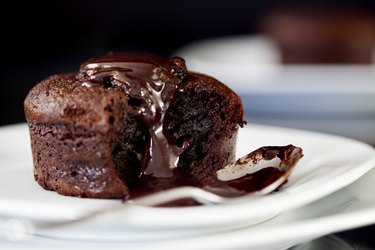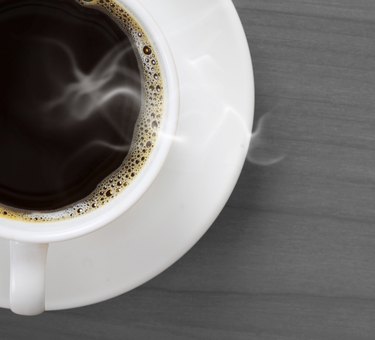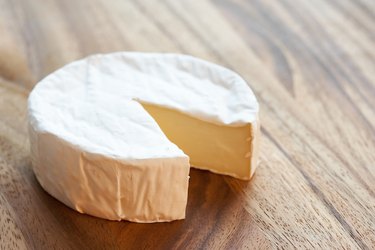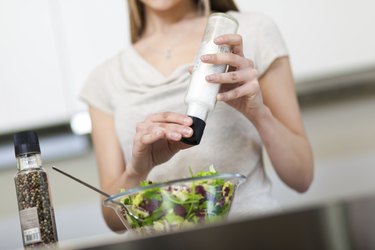
More than half of all women experience some symptoms or signs of fibrocystic breasts over the course of their lifetime. The term describes breasts that feel lumpy or bumpy in texture as a result of nodular of glandular breast tissue development, including round or oval cysts. At times painful and unsightly, the symptoms of fibrocystic breast disease can be helped by avoiding certain foods.
Caffeine
Video of the Day

Reducing or totally eliminating the amount of caffeine you consume may help with fibrocystic breasts. According to Brown University, this should include the elimination or reduction of all caffeinated beverages and foods, including coffee, sodas, tea and chocolates, for four to six months. This time period is recommended as not all women find caffeine elimination helpful in studies, but a trial period will indicate whether it is helpful in your specific case.
Video of the Day
Saturated Fats

Brown University reports that a correlation has been established between saturated fats and fibrocystic breast disease. Increased saturated fat intake leads to higher incidence of fibrocystic breast disease. Avoid fatty cuts of meat, eggs and high-fat dairy, including cheese, cream and full-fat yogurt.
Alcohol

Both Brown University and Women to Women counsel those with fibrocystic breast disease to either give up alcohol entirely or cut back consumption levels to very low intake points. Women to Women notes that this is not effective for everyone in terms of bringing relief, but it is effective in some women. A part of the benefit comes from the relief that eliminating alcohol from the diet brings to the liver, which also works to process out excess estrogen in the body, which is a contributor to fibrocystic breast disease.
Salty Foods

Salt helps the body to retain fluids, but the cysts of fibrocystic breasts are primarily composed of fluids. According to Women to Women, cutting out or dramatically lowering the salt levels in your diet may help reduce retained fluids and the size of your cysts. If you need to use salt, choose an iodized over an uniodized salt source. Iodine deficiency has been linked to increased likelihood of breast cysts, according to the University of Maryland Medical Center.